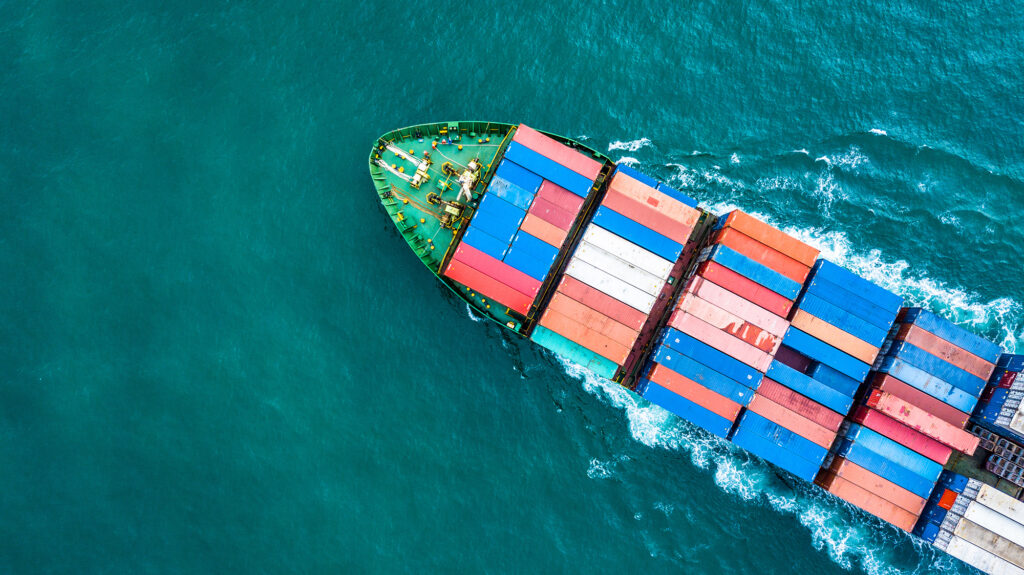- By TOP CHINA FREIGHT
- September 11, 2025
- Shipping
Table of Contents
Choosing the right China shipping agent to Sri Lanka can be the difference between smooth delivery and costly delays. Many importers face challenges with shipping costs, transit time, customs, and freight methods. This comprehensive guide explains everything you need to know, from rates and documentation to practical strategies that will help optimize your supply chain.

Why do you need a China shipping agent to Sri Lanka?
Working with a reliable shipping agent ensures your goods move efficiently across international borders. Agents handle freight booking, customs paperwork, warehousing, and last-mile delivery. Moreover, they negotiate better rates with carriers, saving businesses money.
Importers without an experienced partner often face shipment delays, unnecessary demurrage charges, or misclassified customs entries. Therefore, a professional China shipping agent to Sri Lanka is crucial for businesses aiming to expand smoothly.
What are the main shipping methods from China to Sri Lanka?
| Shipping Method | Transit Time | Cost Range | Best For |
|---|---|---|---|
| Sea Freight (FCL) | 18–25 days | $1,000–$2,500 per container | Bulk goods, heavy cargo |
| Sea Freight (LCL) | 20–28 days | $50–$120 per CBM | Small to medium shipments |
| Air Freight | 3–7 days | $5–$10 per kg | Urgent, high-value, light goods |
| Express Courier | 2–5 days | $7–$15 per kg | Samples, e-commerce, small parcels |
Sea freight is cost-effective for large loads, while air freight is suitable for urgent deliveries. Express courier is preferred for documents or time-sensitive e-commerce orders.
How much does shipping from China to Sri Lanka cost?

Shipping costs depend on weight, dimensions, cargo type, and shipping method. For a 20ft container, the cost ranges from $1,000 to $1,500, while a 40ft container can cost $1,800–$2,500.
For air freight, general cargo rates average $5–$7 per kg, while express services can reach $12–$15 per kg. However, rates fluctuate based on peak seasons, fuel surcharges, and customs fees.
| Cargo Type | Mode | Average Rate | Notes |
|---|---|---|---|
| Consumer Goods | Sea (FCL) | $1,200–$1,800 | Best for large volumes |
| Electronics | Air Freight | $6–$8/kg | Speed critical for market demand |
| Clothing & Textiles | Sea (LCL) | $70–$100/CBM | High demand in retail |
| Small Parcels | Courier | $10–$15/kg | Suitable for urgent e-commerce |
Which documents are required for customs clearance?

| Document | Purpose |
|---|---|
| Commercial Invoice | Declares product value and description |
| Packing List | Details cargo weight, size, and packaging |
| Bill of Lading (B/L) | Contract of carriage for sea shipments |
| Airway Bill (AWB) | Shipping document for air cargo |
| Certificate of Origin | Proves where goods were manufactured |
| Import License | Required for restricted or regulated items |
Additionally, Sri Lanka Customs may request special permits for food, medical equipment, or electronics.
What are the pros and cons of sea vs. air freight?

| Factor | Sea Freight | Air Freight |
|---|---|---|
| Cost | Lower per unit for bulk shipments | Higher per kg |
| Speed | 18–30 days | 3–7 days |
| Reliability | Subject to port congestion, weather | Highly reliable schedules |
| Cargo Size | Suitable for large, heavy goods | Best for small, high-value shipments |
| Environmental | Lower carbon per ton | Higher emissions per ton |
Therefore, importers must evaluate urgency versus budget before choosing.
How long does shipping take from China to Sri Lanka?
Transit time depends on method and port of origin.
| Origin City | Sea Freight (FCL) | Air Freight | Courier |
|---|---|---|---|
| Shanghai | 20–25 days | 4–6 days | 2–4 days |
| Guangzhou | 18–22 days | 3–5 days | 2–4 days |
| Shenzhen | 19–24 days | 4–6 days | 2–5 days |
| Ningbo | 20–26 days | 4–7 days | 2–5 days |
Delays may occur during Chinese New Year, Christmas peak season, or monsoon disruptions in Sri Lanka.
How does a shipping agent simplify logistics?
A professional China shipping agent to Sri Lanka manages end-to-end logistics. They:
- Negotiate competitive freight rates.
- Handle booking and cargo consolidation.
- Arrange customs clearance and duty payments.
- Manage warehousing and local delivery in Sri Lanka.
- Provide real-time tracking and supply chain visibility.
Therefore, working with a trusted agent reduces administrative workload and ensures compliance with trade regulations.
Case Study: Shipping electronics from Shenzhen to Colombo

A Sri Lankan retailer imported 800 kg of smartphones from Shenzhen. By sea freight, costs would have been $1,500 for a 20ft container with 22-day transit. However, due to product launch deadlines, they chose air freight at $6/kg, costing $4,800. Delivery took 5 days, allowing the retailer to launch before a local festival. The fast turnaround generated $20,000 in additional revenue, proving that timely delivery outweighed higher freight charges.
Can small businesses benefit from using shipping agents?
Yes. Small importers often lack experience in international trade.
Agents assist with:
- Cargo consolidation for lower rates.
- Choosing between LCL and air freight.
- Preparing accurate documentation.
- Avoiding customs penalties.
- Improving delivery schedules.
This support allows SMEs to compete with larger importers without overspending on logistics.
What challenges exist when shipping from China to Sri Lanka?
Importers may face:
- Customs delays due to incomplete paperwork.
- Port congestion during peak seasons.
- Currency fluctuations affecting freight rates.
- Regulatory changes in Sri Lanka’s import policies.
- Seasonal weather such as monsoon storms.
Therefore, proactive planning with a reliable agent helps minimize these risks.
What trends impact shipping from China to Sri Lanka?
The future of freight shows several trends:
- Digital platforms for instant booking and tracking.
- Green logistics with carbon-neutral shipping initiatives.
- Growing e-commerce demand requiring faster deliveries.
- Regional partnerships under the Belt and Road Initiative.
Staying aware of these developments helps importers remain competitive.
Conclusion
A reliable China shipping agent to Sri Lanka is essential for businesses that want to optimize costs, ensure compliance, and guarantee timely deliveries. With options ranging from economical sea freight to fast air freight, the right logistics partner can significantly improve efficiency. By planning carefully, consolidating shipments, and preparing accurate documentation, importers can minimize risks and strengthen their supply chain.
Need a Shipping Quote?
If you want expert guidance and peace of mind, our team is ready to assist.
TJ China Freight offers tailored solutions to help businesses of all sizes ship more reliably from China.

FAQ
Q1:What industries benefit most from a China shipping agent to Sri Lanka?
Electronics, textiles, and FMCG sectors benefit most. Agents provide cost savings, faster customs clearance, and secure delivery, improving supply chain efficiency.
Q2:Can I track my shipment from China to Sri Lanka online?
Yes. Most freight forwarders offer digital tracking tools. Using the Bill of Lading or Airway Bill, importers can monitor real-time shipment progress.
Q3:Do shipping agents help with duty and tax payments in Sri Lanka?
Yes. A professional China shipping agent manages duty calculations and tax payments, ensuring compliance with Sri Lanka Customs and avoiding unexpected penalties.
Q4:How do I choose between FCL and LCL shipping?
If you ship over 15 CBM, FCL is cost-effective. For smaller loads, LCL is better. A shipping agent helps assess which option suits your cargo.
Q5:Are there restrictions on goods shipped from China to Sri Lanka?
Yes. Restricted items include hazardous chemicals, medical devices, and some agricultural goods. Agents assist with licenses and permits to prevent delays.
